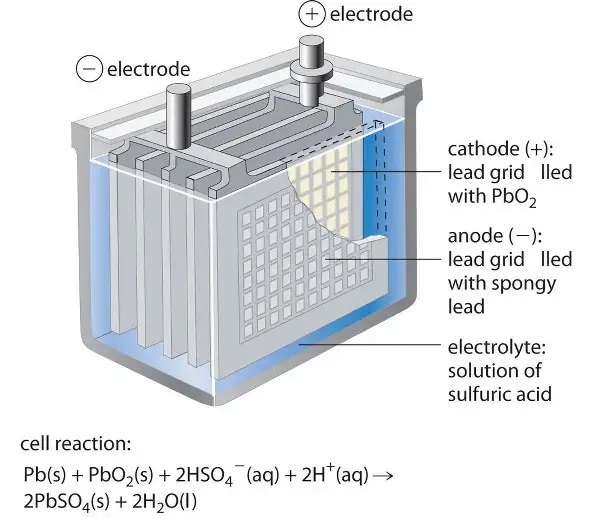Lead-acid batteries have been widely used for many decades and continue to be a popular choice for certain applications due to several advantages. However, it’s important to note that each type of battery has its own strengths and weaknesses, and the choice of battery depends on the specific requirements of the application.
- Low Cost: Lead-acid batteries are generally more cost-effective compared to many other types of batteries, making them a preferred choice for applications where cost is a significant factor.
- Maturity and Reliability: Lead-acid technology is well-established and has been in use for a long time. This maturity contributes to their reliability and predictable performance in various applications.
- High Current Capability: Lead-acid batteries can deliver high currents, making them suitable for applications that require a sudden surge of power, such as starting an internal combustion engine in vehicles.
- Robust and Durable: Lead-acid batteries are robust and can withstand overcharging and deep discharging better than some other battery types. They are also less sensitive to external factors like temperature variations.
- Recyclability: Lead-acid batteries are highly recyclable. The lead content makes them economically valuable to recycle, and the recycling process is well-established and environmentally friendly.
- Widely Available: Lead-acid batteries are readily available in various sizes and configurations, making them easy to find for a wide range of applications.
- Maintenance-Friendly: Some types of lead-acid batteries, such as flooded (wet cell) batteries, may require periodic maintenance, but this can also be seen as an advantage for users who prefer to monitor and maintain their batteries.
Despite these advantages, lead-acid batteries also have limitations, such as relatively low energy density, larger size and weight for a given capacity compared to some newer technologies, and limited cycle life in deep-discharge applications. For specific use cases where these limitations are not critical, lead-acid batteries remain a practical and cost-effective choice. However, in applications where energy density, weight, or cycle life are critical factors, other battery technologies like lithium-ion may be more suitable.


